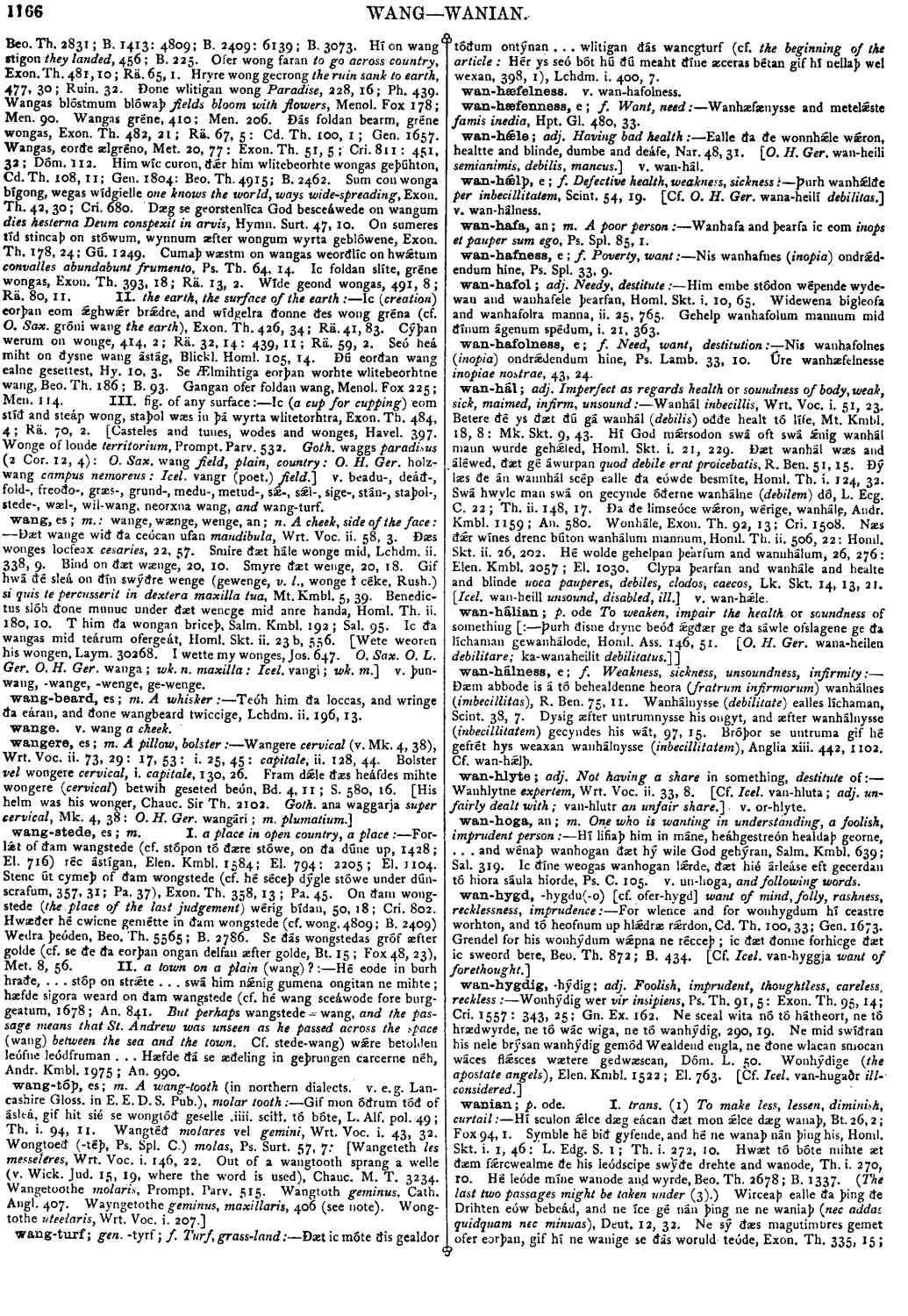wang-stede
- noun [ masculine ]
-
For*-*lǽt of ðam wangstede (cf. stópon tó ðære stówe, on ða dúne up,
- 1428; El. 716) réc ástígan, Elen. Kmbl. 1584; El. 794: 2205; El. 1104.
-
Stenc út cymeþ of ðam wongstede (cf. hé séceþ dýgle stówe under dún*-*scrafum,
- 357, 31; Pa. 37), Exon. Th. 358, 13 ; Pa. 45.
-
On ðam wongstede
(the, place of the last judgement)
wérig bídan,- 50, 18; Cri. 802.
-
Hwæðer hé cwicne gemétte in ðam wongstede (cf. Wong. 4809; B. 2409) Wedra þeóden,
- Beo. Th. 5565; B. 2786.
-
Se ðás wongstedas gróf æfter golde (cf. se ðe ða eorþan ongan delfan æfter golde,
- Bt. 15 ; Fox 48, 23), Met. 8, 56.
-
Hé eode in burh hraðe, . . . stóp on strǽte . . . swá him nǽnig gumena ongitan ne mihte; hæfde sigora weard on ðam wangstede (cf. Hė wang sceáwode fore burg*-*geatum, 1678; An. 841. But perhaps wangstede - wang,
and the passage means that St. Andrew was unseen as he passed across the space (wang) between the sea and the town.
- Cf. stede-wang)
Bosworth, Joseph. “wang-stede.” In An Anglo-Saxon Dictionary Online, edited by Thomas Northcote Toller, Christ Sean, and Ondřej Tichy. Prague: Faculty of Arts, Charles University, 2014. https://bosworthtoller.com/34649.
Checked: 0